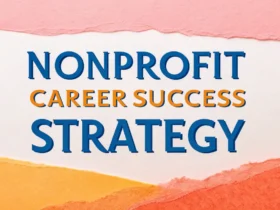Landing your dream finance career can feel like scaling Everest in flip-flops. You’re smart, driven, and ready to conquer the business world, but navigating the labyrinth of finance roles and charting a course for long-term growth can be overwhelming. So many bright minds find themselves stuck in a career rut, unsure how to break through to the next level.
This article acts as your Sherpa, guiding you through the often-murky terrain of the finance career landscape. We won’t sugarcoat the challenges, but we’ll provide an honest, data-backed strategy for achieving your professional aspirations. Consider this your personalized roadmap, filled with actionable insights and proven methods for accelerating your growth in the exciting world of finance.
Understanding the Finance Career Landscape
The finance world is a vast and varied ecosystem. Jumping in without a clear picture of the different paths can leave you lost. A recent study by the Bureau of Labor Statistics shows that the financial sector is projected to grow, but the specific areas of growth vary significantly.
Before forging ahead, let’s break down some of the main areas within finance and what they entail:
-
Investment Banking: These professionals help companies raise capital through the issuance of stocks and bonds. They also advise on mergers and acquisitions. The hours are long, but the financial rewards can be significant.
-
Asset Management: Asset managers oversee investment portfolios for individuals and institutions. They research investment opportunities, make buy and sell decisions, and strive to maximize returns. This field requires a deep understanding of financial markets and investment strategies.
-
Corporate Finance: This involves managing a company’s finances, including budgeting, financial planning, and risk management. Corporate finance professionals play a crucial role in ensuring a company’s financial health and stability.
-
Financial Planning: Financial planners advise individuals on how to manage their money, save for retirement, and achieve their financial goals. This career path requires strong interpersonal skills and a genuine desire to help others.
-
Hedge Funds: These investment firms use sophisticated strategies to generate high returns for their investors. Hedge fund jobs are highly competitive, demanding strong analytical and quantitative skills.
-
Private Equity: Private equity firms invest in companies that are not publicly traded. They often take a hands-on approach, working with management teams to improve operations and increase profitability.
-
FinTech: Finance and technology are converging, creating new and exciting opportunities in FinTech. This area involves developing innovative financial products and services using technology.
Each of these areas has its own unique demands and rewards. Therefore, choosing the right path is key to your long-term success and happiness.
Assessing Your Skills and Interests
Before setting your sights on a particular finance role, take a hard look at your strengths, weaknesses, and what truly excites you. A finance career is not just a job; it’s a long-term journey. So, you need to find a path that aligns with your core values and passions.
Here are some questions to ponder:
-
What are you good at? Are you a natural with numbers? Do you enjoy analyzing data? Are you a strong communicator?
-
What do you enjoy doing? What aspects of finance fascinate you? Do you thrive in a fast-paced environment? Do you prefer working independently or as part of a team?
-
What are your values? Do you want to make a difference in the world? Are you motivated by money? Do you value work-life balance?
According to a study by the CFA Institute, individuals who align their careers with their values and interests are more likely to experience job satisfaction and achieve long-term success.
Setting Realistic Goals
Once you have a better understanding of yourself and the finance landscape, it’s time to set some realistic goals. Avoid aiming too high too quickly. Instead, break down your long-term aspirations into smaller, more manageable steps.
Here’s an example:
-
Long-term goal: Become a portfolio manager at a top asset management firm.
-
Mid-term goals: Obtain a CFA charter, gain experience as a financial analyst, develop a strong track record of investment performance.
-
Short-term goals: Network with professionals in the asset management industry, improve your financial modeling skills, read industry publications.
Remember, a finance career is a marathon, not a sprint. By setting realistic goals and celebrating your progress along the way, you’ll stay motivated and on track to achieve your dreams.
Education and Certifications: Building Your Foundation
In the competitive finance world, education and certifications are essential. They demonstrate your knowledge, skills, and commitment to the profession.
Here are some of the most valuable credentials for aspiring finance professionals:
-
CFA (Chartered Financial Analyst): This is a globally recognized designation for investment professionals. It covers a broad range of topics, including portfolio management, security analysis, and ethics.
-
MBA (Master of Business Administration): An MBA can provide you with a broad understanding of business principles and help you develop leadership skills. It’s particularly valuable for those seeking to move into management roles.
-
CPA (Certified Public Accountant): This designation is for accounting professionals. It demonstrates expertise in financial reporting, auditing, and taxation.
-
CFP (Certified Financial Planner): This certification is for financial planners who advise individuals on how to manage their money and achieve their financial goals.
The specific education and certifications you need will depend on your career goals. For example, if you want to work in investment management, the CFA charter is highly recommended. If you’re interested in corporate finance, an MBA or CPA might be more appropriate.
Networking: Building Connections, Opening Doors
In finance, who you know can be just as important as what you know. Building a strong network of contacts can open doors to opportunities that might otherwise be unavailable.
Here are some ways to expand your network:
-
Attend industry events: Conferences, seminars, and workshops provide excellent opportunities to meet professionals in your field.
-
Join professional organizations: Groups like the CFA Society and Financial Planning Association offer networking events and educational resources.
-
Reach out to people on LinkedIn: Connect with professionals whose careers you admire and ask for informational interviews.
-
Attend alumni events: Your university alumni network can be a valuable resource for finding mentors and job opportunities.
-
Volunteer: Volunteering in your community can expose you to different people and new opportunities.
Networking is not just about collecting business cards. It’s about building genuine relationships with people who can support your career growth. Remember to be helpful, respectful, and always follow up after meeting someone new.
Mastering Essential Skills: The Finance Toolkit
To thrive in the finance world, you need a solid set of technical and soft skills. These skills will enable you to perform your job effectively and stand out from the competition.
Here are some essential skills for finance professionals:
- Financial Modeling: Building financial models to forecast future performance and evaluate investment opportunities.
- Data Analysis: Using data to identify trends, make informed decisions, and solve problems.
- Valuation: Determining the fair value of assets and companies.
- Accounting: Understanding financial statements and accounting principles.
- Communication: Clearly and concisely communicating complex financial information to clients and colleagues.
- Problem-Solving: Identifying and solving financial problems using critical thinking and analytical skills.
- Negotiation: Negotiating deals and agreements with clients and counterparties.
- Leadership: Leading and motivating teams to achieve common goals.
You can develop these skills through coursework, on-the-job training, and self-study. Online resources like Coursera and Udemy offer a wide range of finance-related courses.
Crafting a Standout Resume and Cover Letter
Your resume and cover letter are your first impression on potential employers. They need to be well-written, error-free, and tailored to the specific job you’re applying for.
Here are some tips for crafting a standout resume and cover letter:
-
Highlight your accomplishments: Focus on what you’ve achieved in your previous roles, not just what you did.
-
Use keywords: Incorporate keywords from the job description into your resume and cover letter.
- Quantify your results: Use numbers to demonstrate the impact you’ve had on your previous employers.
-
Tailor your resume and cover letter to each job: Don’t send out generic applications.
-
Proofread carefully: Errors in your resume and cover letter can create a negative impression.
- Keep it concise: Aim for one-page resume, and keep your cover letter focused and to the point.
A well-crafted resume and cover letter will get you noticed and increase your chances of landing an interview.
Acing the Interview: Selling Yourself Effectively
The interview is your opportunity to sell yourself to potential employers. It’s where you can showcase your skills, experience, and personality.
Here are some tips for acing the interview:
- Research the company: Understand the company’s business, culture, and values.
- Prepare for common interview questions: Practice answering questions about your strengths, weaknesses, and career goals.
-
Use the STAR method: Use the Situation, Task, Action, Result (STAR) method to structure your answers to behavioral interview questions.
-
Ask insightful questions: Asking thoughtful questions demonstrates your interest in the company and the role.
- Dress professionally: Dress appropriately for the company’s culture.
- Follow up after the interview: Send a thank-you note to the interviewer expressing your gratitude for their time.
By preparing thoroughly and presenting yourself confidently, you can increase your chances of landing your dream finance job.
Salary Negotiation: Knowing Your Worth
Once you receive a job offer, it’s time to negotiate your salary. Many people feel uncomfortable negotiating, but it’s an important part of ensuring you’re being fairly compensated for your skills and experience.
Here are some tips for salary negotiation:
-
Research industry benchmarks: Use online resources like Glassdoor and Salary.com to research the average salary for similar roles in your location.
-
Know your worth: Understand your value based on your skills, experience, and education.
- Be confident: Approach the negotiation with confidence and professionalism.
-
Be prepared to walk away: Know your bottom line and be willing to decline the offer if it doesn’t meet your needs.
-
Focus on the total compensation package: Consider benefits, bonuses, and other perks in addition to your base salary.
- Be respectful: Maintain a positive and professional tone throughout the negotiation.
Remember, salary negotiation is a two-way street. Be willing to compromise, but don’t be afraid to advocate for yourself.
The First Few Years: Building a Strong Foundation
Landing your first finance job is just the beginning. The first few years are critical for building a strong foundation for your future career.
Here are some tips for success in your early career:
- Be a sponge: Absorb as much information as possible from your colleagues and mentors.
- Take initiative: Look for opportunities to go above and beyond your job description.
- Seek feedback: Regularly ask for feedback on your performance and identify areas for improvement.
-
Build relationships: Develop strong relationships with your colleagues and managers.
-
Be patient: Career growth takes time. Don’t expect to become a CEO overnight.
- Stay positive: Maintain a positive attitude, even when facing challenges.
By working hard, learning continuously, and building strong relationships, you can set yourself up for long-term success in your finance career.
Career Advancement Strategies: Moving Up the Ladder
As you gain experience, you’ll likely want to advance your career. Here are some strategies for moving up the ladder in the finance world:
- Seek out challenging assignments: Take on projects that stretch your skills and push you outside of your comfort zone.
- Develop your leadership skills: Take courses or workshops to improve your leadership abilities.
- Mentor others: Helping others succeed can demonstrate your leadership potential and build your network.
-
Network strategically: Focus on building relationships with people who can help you advance your career.
-
Pursue advanced degrees or certifications: Obtaining an MBA, CFA, or other relevant credential can open doors to new opportunities.
- Be willing to relocate: Moving to a new location can broaden your experience and increase your chances of promotion.
Career advancement requires a proactive approach. By taking ownership of your career and actively pursuing opportunities for growth, you can achieve your professional goals.
Specializing Your Skills: Finding Your Niche
As you progress in your finance career, consider specializing in a particular area. Developing expertise in a niche can make you more valuable and increase your earning potential.
Here are some popular finance niches:
- Sustainable Investing: Focuses on investments that consider environmental, social, and governance (ESG) factors.
- Financial Technology (FinTech): Combines finance with technology to create innovative financial products and services.
- Real Estate Finance: Involves financing and investing in real estate properties.
- Healthcare Finance: Focuses on the financial aspects of the healthcare industry.
- International Finance: Deals with financial transactions and investments across borders.
Choosing a niche that aligns with your interests and skills can make your work more enjoyable and rewarding.
Staying Relevant: Adapting to Change
The finance world is constantly evolving. New technologies, regulations, and market conditions are constantly changing the landscape. To stay relevant, you need to be a lifelong learner and adapt to change.
Here are some ways to stay up-to-date:
- Read industry publications: Stay informed about the latest news and trends in finance.
- Attend conferences and seminars: Learn from experts and network with other professionals.
- Take online courses: Keep your skills sharp by taking courses on new technologies and financial concepts.
- Follow thought leaders on social media: Stay informed about the latest insights and opinions in the finance world.
By staying relevant and adapting to change, you can ensure that your skills and knowledge remain valuable throughout your career.
Overcoming Challenges: Resilience is Key
A finance career, while rewarding, is not without its challenges. Market downturns, job losses, and ethical dilemmas are all potential obstacles you may face.
Here are some tips for overcoming challenges:
- Develop resilience: Learn to bounce back from setbacks and failures.
- Seek support: Talk to friends, family, or a therapist when you’re struggling.
- Maintain a positive attitude: Focus on the things you can control and stay optimistic about the future.
-
Learn from your mistakes: Use your failures as opportunities for growth.
-
Maintain work-life balance: Don’t let your career consume your life. Make time for activities that you enjoy and that help you relax.
- Seek out mentors: Connect with experienced professionals who can provide guidance and support.
By developing resilience and seeking support, you can overcome challenges and thrive in your finance career.
Work-Life Balance: Finding Harmony
The finance world is known for its long hours and demanding workload. But it’s important to find a balance between your career and your personal life. Neglecting your well-being can lead to burnout, stress, and health problems.
Here are some tips for achieving work-life balance:
- Set boundaries: Establish clear boundaries between your work and personal life.
- Prioritize your health: Make time for exercise, healthy eating, and sleep.
-
Take breaks: Step away from your work regularly to recharge.
-
Schedule time for hobbies and interests: Engage in activities that you enjoy and that help you relax.
- Spend time with loved ones: Nurture your relationships with family and friends.
- Learn to say no: Don’t overcommit yourself to work or other obligations.
Finding work-life balance is an ongoing process. By making conscious choices and prioritizing your well-being, you can create a fulfilling and sustainable finance career.
Ethical Considerations: Maintaining Integrity
The finance world has faced numerous ethical scandals in recent years. Maintaining integrity and acting ethically are crucial for building trust and protecting your reputation.
Here are some ethical considerations to keep in mind:
- Always act in the best interests of your clients: Put their needs first, even if it means sacrificing your own financial gain.
- Be transparent and honest in your dealings: Disclose any potential conflicts of interest.
-
Follow all applicable laws and regulations: Understand and comply with the ethical codes of your profession.
-
Avoid insider trading and other illegal activities: Never use confidential information for personal gain.
- Speak up if you see something unethical: Report any wrongdoing to the appropriate authorities.
- Maintain your independence and objectivity: Don’t let personal relationships or biases influence your decisions.
By upholding the highest ethical standards, you can build a successful and reputable finance career.
Giving Back: Leaving a Positive Impact
As you achieve success in your finance career, consider giving back to your community or the profession. Mentoring young professionals, volunteering your time, or donating to charitable causes can make a positive impact on the world.
Here are some ways to give back:
- Mentor young professionals: Share your knowledge and experience with those who are just starting out.
- Volunteer your time: Offer your financial expertise to non-profit organizations.
- Donate to charitable causes: Support organizations that are working to improve financial literacy or address social problems.
- Serve on boards of directors: Use your skills to help guide and oversee non-profit or for-profit organizations.
By giving back, you can leave a lasting legacy and make a difference in the lives of others.
Staying Ahead of the Curve: Investing in Yourself
The finance world is dynamic, with new challenges and opportunities emerging constantly. Therefore, continuous learning and professional development are crucial for long-term career success. Don’t just coast on your existing skills. Proactively seek out new knowledge and experiences to stay ahead of the curve.
Embrace new technologies, such as artificial intelligence (AI) and blockchain, and explore how they can be applied to finance. Develop new skills, such as data analytics and coding, to enhance your capabilities. Attend industry conferences and workshops to stay informed about the latest trends and best practices.
By actively investing in yourself, you can ensure that you remain competitive and relevant in the ever-changing finance landscape.
Finding Fulfillment: More Than Just a Paycheck
While financial success is often a primary motivator in the finance world, it’s essential to find fulfillment in your work beyond just a paycheck. Seek out opportunities that align with your passions and values.
Consider the impact your work has on others and the world around you. Are you helping people achieve their financial goals? Are you contributing to a more sustainable and equitable economy?
When you find meaning and purpose in your finance career, it becomes more than just a job. It becomes a source of personal satisfaction and fulfillment.
Should You Jump In?
The finance career path is challenging, demanding, and not for the faint of heart. But it’s also one filled with opportunity for those with passion, skill, and drive. If you embrace lifelong learning, build your network, prioritize ethical behavior, and find ways to give back, a long and rewarding career awaits.















Leave a Reply
View Comments